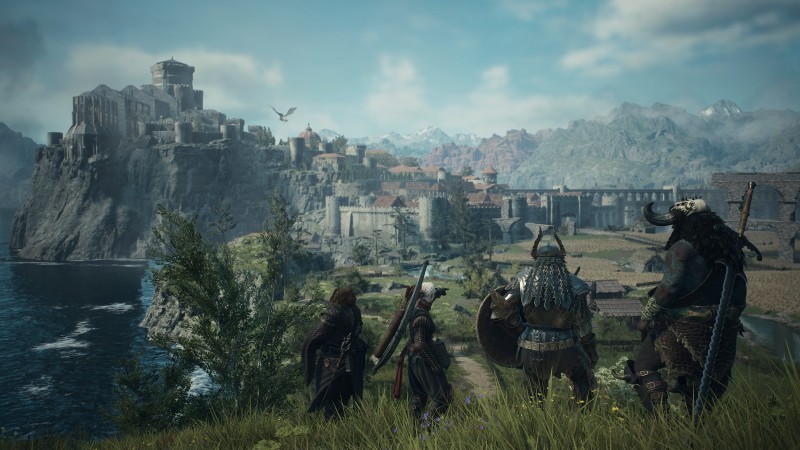Fast travel is very common in modern open-world games and a welcome quality of life improvement, but it's a mechanic that isn't really emphasized in Dragon's Dogma 2. It may sound like a pain, but to my surprise, it made the game more fun than ever.
It's worth noting that while there are some fast travel options in the game, they are limited. Bullock carts are the easiest and most affordable option, but they are only available in certain cities and each route has only one of two destinations. They are also prone to attack. In one extreme case, you'd get off your wagon to kill a goblin, turn around to get back in, and the griffin's attack would completely destroy your wagon, leaving you stranded in the middle of nowhere. Another fast travel option is an expensive item called a Ferry Stone, which can be used to travel to a very rare magical landmark called a Port Crystal.
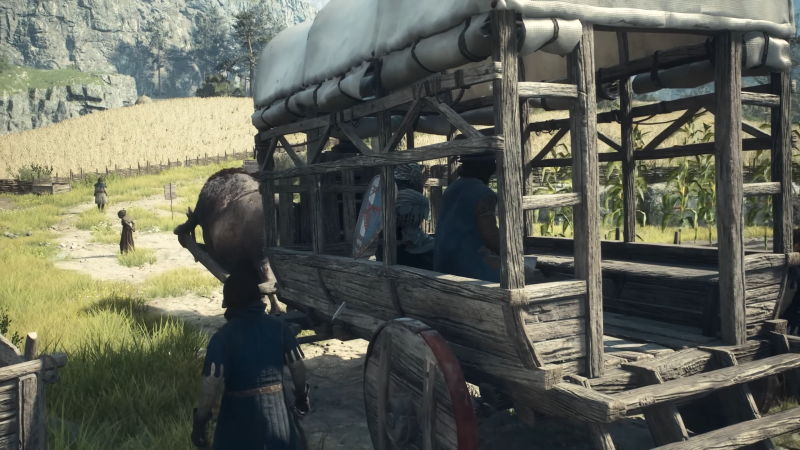
At the time of Dragon's Dogma 2's release, there was some controversy over the fact that certain items, including port crystals, could be purchased as microtransactions. This also irritates me as I play the game, but I'm not saying I wish it was a free option. It shouldn't be optional at all. Using real money to circumvent that obstacle misses the point of the game and is a frustrating way to make money for Capcom. Dragon's Dogma 2 is designed around not being able to move around the world quickly, and it's much more powerful because of it.
The world is dangerous according to in-game NPCs, but the lack of fast travel shows the player how dangerous and inconvenient it really is. Going on a wild journey means facing enemies in battle, and the more damage you take, the less your maximum health. Too many encounters can cause your health bar to become dangerously low, and even the easiest enemies can kill you in just a few hits. Sleep is the only way to fully recover, and you can sleep at an inn in town or at a campsite in the wilderness. However, you can only sleep at a campsite if you have the proper equipment. It's also quite heavy, so you'll need to free up space in your inventory. After all, the more things you carry, the slower you move.
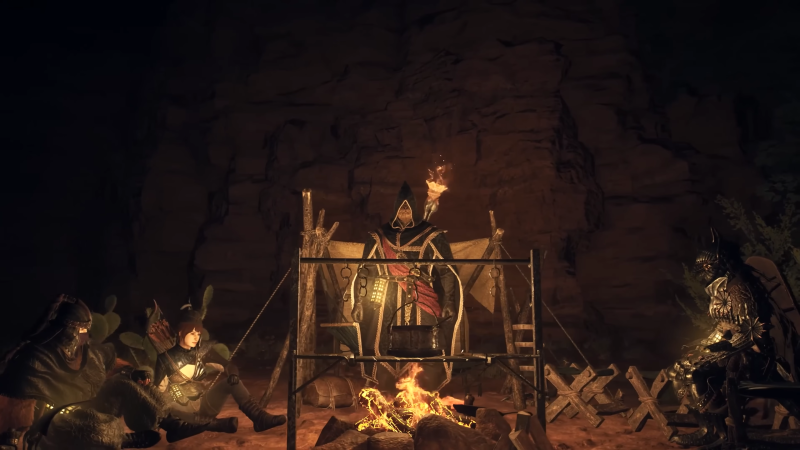
Even if you don't need to heal, it's worth having some space to avoid exposure at night, when monster danger is highest. However, even within your tent, you can be ambushed by an unlucky adventurer in the middle of the night and need to run or defend yourself. This is all assuming you can even find a campsite, as visibility is very poor at night even with a lantern, and your lantern can run out of fuel if you're not careful.
On paper, this sounds miserable.
It seems like a game no sane person would play because it seems intended to punish the player. Still, it's this harsh system that makes the game so rewarding. Braving all these conditions, defeating giant monsters, and barely making it back to the city alive is thrilling every time, and by the time you're strong and smart enough to easily go on an expedition, you feel much stronger for it. My fondest memories of Dragon's Dogma 2 are all about coming close to dying on a perilous journey. If fast travel was an easy option, these memories wouldn't exist.
The scale of the world will also increase. Leaving the city for a neighboring country's capital can be a challenge, as other cities are not as easily accessible. If someone from one town asks to visit another town, it can take several days in-game and an hour in the real world, so it becomes a very big request. Imagine arriving in Berlin, Germany and hearing that someone needs a favor related to a visit to Paris, France. This is a monumental task and explains why they especially need the help of adventurers like you. When you decide to help someone, your decision is significant, especially considering the fact that many of the quests are run on a timer.
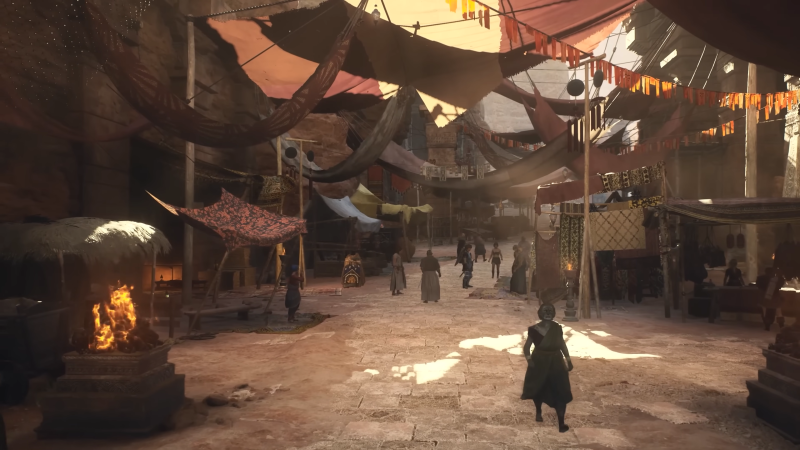
This is an example of an experience I had that would have been ruined by fast travel. It takes the better part of an in-game day to reach the quest marker where a group of bandits appears to be based. As I approached, one of them ran inside. I wasn't at full strength, but I know I'll lose track of them if I don't follow them now. What follows is a grueling challenge as me and my team of pawns battle the entire organization, with some party members going down multiple times, until we finally emerge victorious.
But once you get outside, there are two big problems. Firstly, it's nighttime, and secondly, the nearest campfire is now the site of a battle between several travelers, an army of magical skeletons, and an ogre. I try to kill the enemies quickly so I can use the campfire to rest, but I quickly realize that I'm overreaching, especially after fighting an entire bandit camp. All my pieces died and I was forced to limp into the night alone, hoping to find a campfire. When he finally did so, he realized that the pawns were carrying camping gear. I couldn't take a break even if I wanted to. And then, as if things couldn't get any worse, the lantern burnt out and I was left alone in the middle of nowhere with no friends and no light.
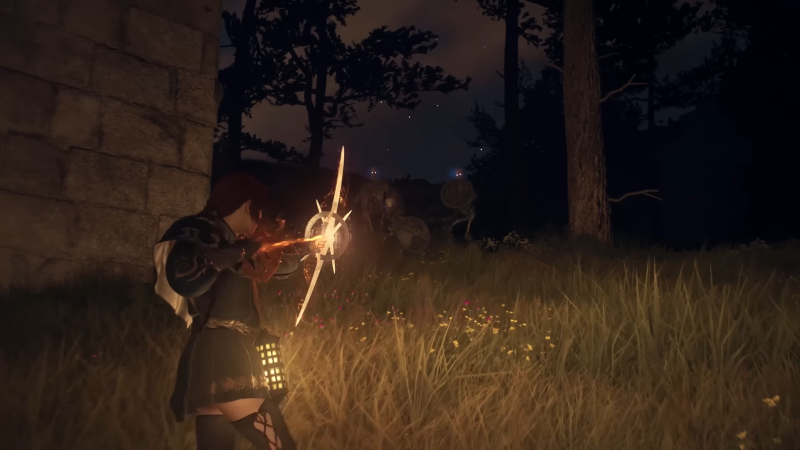
Despite all that, I survived. I managed to make some more oil for my lantern, used my vocation's dash ability to avoid enemies, and made it back to the nearest town just as the sun was starting to rise. This isn't written into the script, so even if someone tried to write it into the game, it wouldn't make for a very meaningful experience. Dragon's Dogma 2's open world isn't just an obstacle you have to overcome to get to the main parts of the game.open world teeth game. It's a symphony of hostile systems, and overcoming them creates a unique story to tell your friends. An easy and free fast travel system negates all of this. The friction of the journey is what makes the conclusion so rewarding. Why would you want to avoid that?


